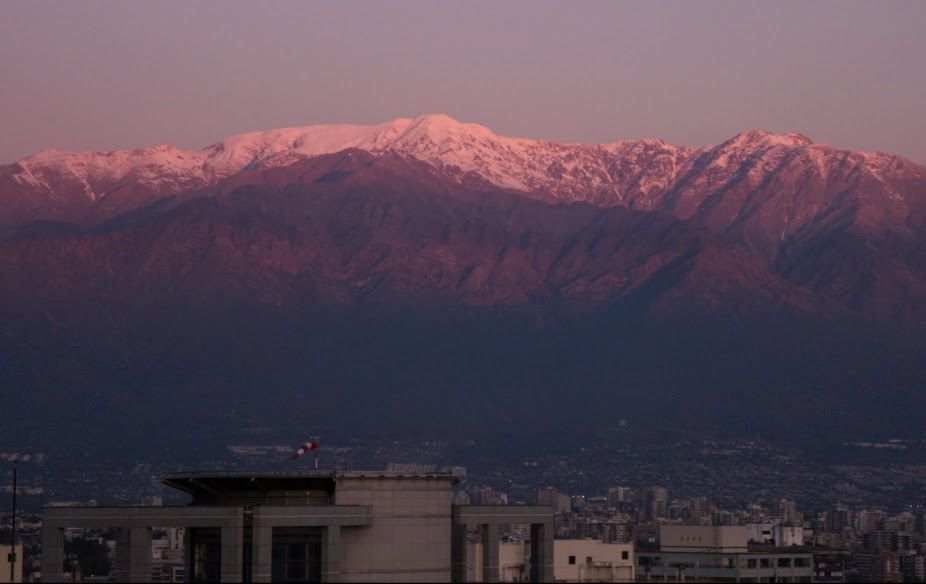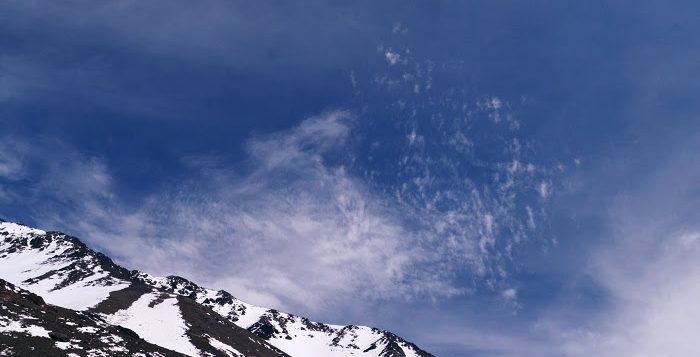The ceremony for the Best Iberoamerican Film of the Awards, where the acclaimed director competes for the first time, will be held on February 12 in Valencia, Spain.
«Each time I pass over the Cordillera, I feel as though I am arriving in the country of my childhood; I don’t recognize the city in which I was born. My gaze has turned towards the mountains. Perhaps they are the gateway to an understanding of present-day Chile,» Patricio Guzmán’s voice-over states in his latest film, The Cordillera of Dreams. A cinematographic essay where the director journeys through the territory and the memory through his personal gaze and the collective perspective of a country that needs to look back.

The critically acclaimed documentary was selected by the Chilean Film Academy to represent the country in the Goya Awards 2022. This selection arrives after having a distinguished journey through notable international film festivals. In 2019, the film was premiered at Cannes Official Selection, receiving the Golden Eye Award for Best Documentary, and, in the same year, was nominated to Best Documentary in the Cesar Awards in France, a prize given by the French Academy of Arts and Techniques of Cinema equivalent to the Oscar Awards in the United States.
Patricio Guzmán currently resides in both France and Spain since his exile after the military dictatorship in the eighties. «It is much better to be at a distance with a subject you portrait: you have more perspective, more chances to look better at what is happening from being far than close. I’ve always done it that way. All my films are about Chile, and I haven’t lived in Chile for forty years, but I love it,» comments the filmmaker in an exclusive interview with the Spanish channel RTVE.
The Cordillera of Dreams was selected along with twelve other Iberoamerican films to compete for the award for Best Iberoamerican Film. Now, the film is a finalist in this category with three other nominees: Song Without a Name (Peru), The Siamese Bond (Argentina), and Los Lobos (México), the three of which are fiction feature films.
Chilean Documentary at Goya
The Cordillera of Dreams nomination brings to memory other Chilean documentaries nominated before in the same category. In past years, Tea Time and The Mole Agent, both by the director Maite Alberdi, competed for the Best Iberoamerican Film. Even though none of the films won, the nominations gave the genre visibility and helped establish Chile as a significant country in documentary filmmaking.
It is important to mention that this isn’t Patricio Guzmán’s first nomination to the Goya Awards. The remarkable director received a nomination for Best Documentary in 2005 with his film Salvador Allende, an homage to the former’s Chilean president.
If winning, The Cordillera of Dreams could become the first Chilean documentary to receive the Best Iberoamerican Film Award.
The trilogy’s finale
The film premiered in 2019 is the third and final part of a trilogy that has accumulated dozens of acknowledgments. In Nostalgia for the Light (2010), the director works in the north of Chile, and in The Pearl Button (2015), the country’s south becomes the protagonist. Finally, in The Cordillera of Dreams, Guzmán takes the Andes Cordillera as the main inspiration as a huge backbone that allows the dialogue between the past and the present of a Chile with a painful story but, today, full of hope.

The documentary works on memory, like many of his previous films. «In reality, memory is a topic that usually takes up a lot of time in the present. Days go by, years go by, and memory is there behind it, and it doesn’t activate, you have a past, and you remember it, but sometimes you don’t talk about the past», states the filmmaker in an interview with the digital media Infobae.
However, that journey through memory and its impact has become timeless and somehow adjusts to the present. «When I made the film, I didn’t know that I was anticipating what was happening in Chile. But the documentary has its paths, it’s like a tunnel forward, and that’s exciting because you discover things that you hadn’t seen before», adds the filmmaker.
Full interview to Patricio Guzman in the Spanish channel RTVE..